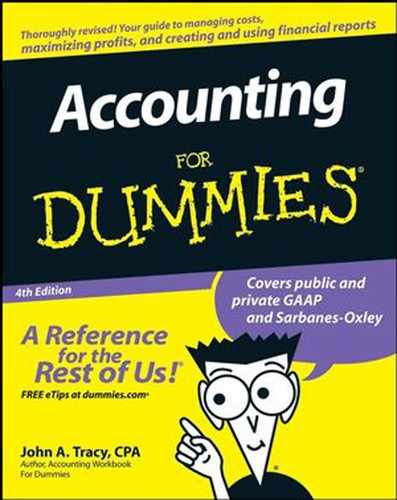17.2. Decide What to Read
Suppose you own stock shares in a public corporation and want to keep informed about its performance. You could depend on articles and news items in The Wall Street Journal, The New York Times, Barron's, and so on that summarize the latest financial reports of the company. This saves you the time and trouble of reading the reports yourself. Generally, these brief articles capture the most important points. If you own an investment portfolio of many different stocks, reading news articles that summarize the financial reports of the companies is not a bad approach. But suppose you want more financial information than you can get in news articles?
The annual financial reports of public companies contain lots of information: a letter from the chief executive, a highlights section, trend charts, financial statements, extensive footnotes to the financial statements, historical summaries, and a lot of propaganda. And you get photos of the top brass and directors, of course. (The financial reports of most private companies are significantly smaller; they contain financial statements with footnotes, and not much more.)
So, how much of the report do you actually read?
You could read just the highlights section and let it go at that. This might do in a pinch. I think you should read the chief executive's letter to shareowners as well. Ideally, the letter summarizes in an evenhanded and appropriately modest manner the main developments during the year. However, these letters from the top dog often are self-congratulatory and typically transfer blame for poor performance on factors beyond the control of the managers. Read them, but take these letters with a grain of salt.
|
The scaled-down, simplified, and shortened versions of annual financial reports are adequate for average stock investors. They are not adequate for serious investors and professional investment managers. These investors and money managers should read the full-fledged financial report of the business, and they may study the company's annual 10-K report that is filed with the Securities and Exchange Commission (SEC). You can go to www.sec.gov and click on Filings & Forms (EDGAR) to retrieve the 10-K of a public company.

